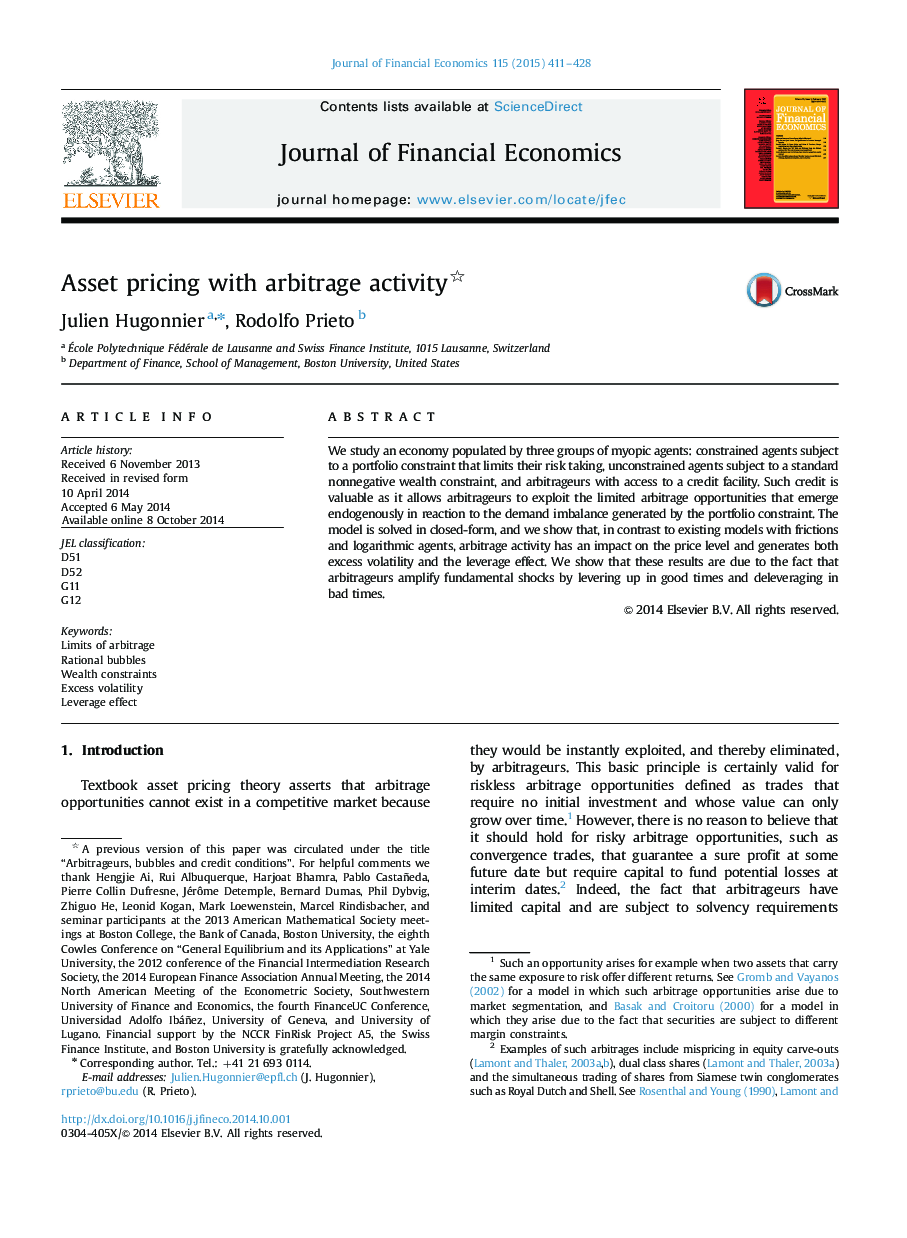| Article ID | Journal | Published Year | Pages | File Type |
|---|---|---|---|---|
| 959858 | Journal of Financial Economics | 2015 | 18 Pages |
We study an economy populated by three groups of myopic agents: constrained agents subject to a portfolio constraint that limits their risk taking, unconstrained agents subject to a standard nonnegative wealth constraint, and arbitrageurs with access to a credit facility. Such credit is valuable as it allows arbitrageurs to exploit the limited arbitrage opportunities that emerge endogenously in reaction to the demand imbalance generated by the portfolio constraint. The model is solved in closed-form, and we show that, in contrast to existing models with frictions and logarithmic agents, arbitrage activity has an impact on the price level and generates both excess volatility and the leverage effect. We show that these results are due to the fact that arbitrageurs amplify fundamental shocks by levering up in good times and deleveraging in bad times.
